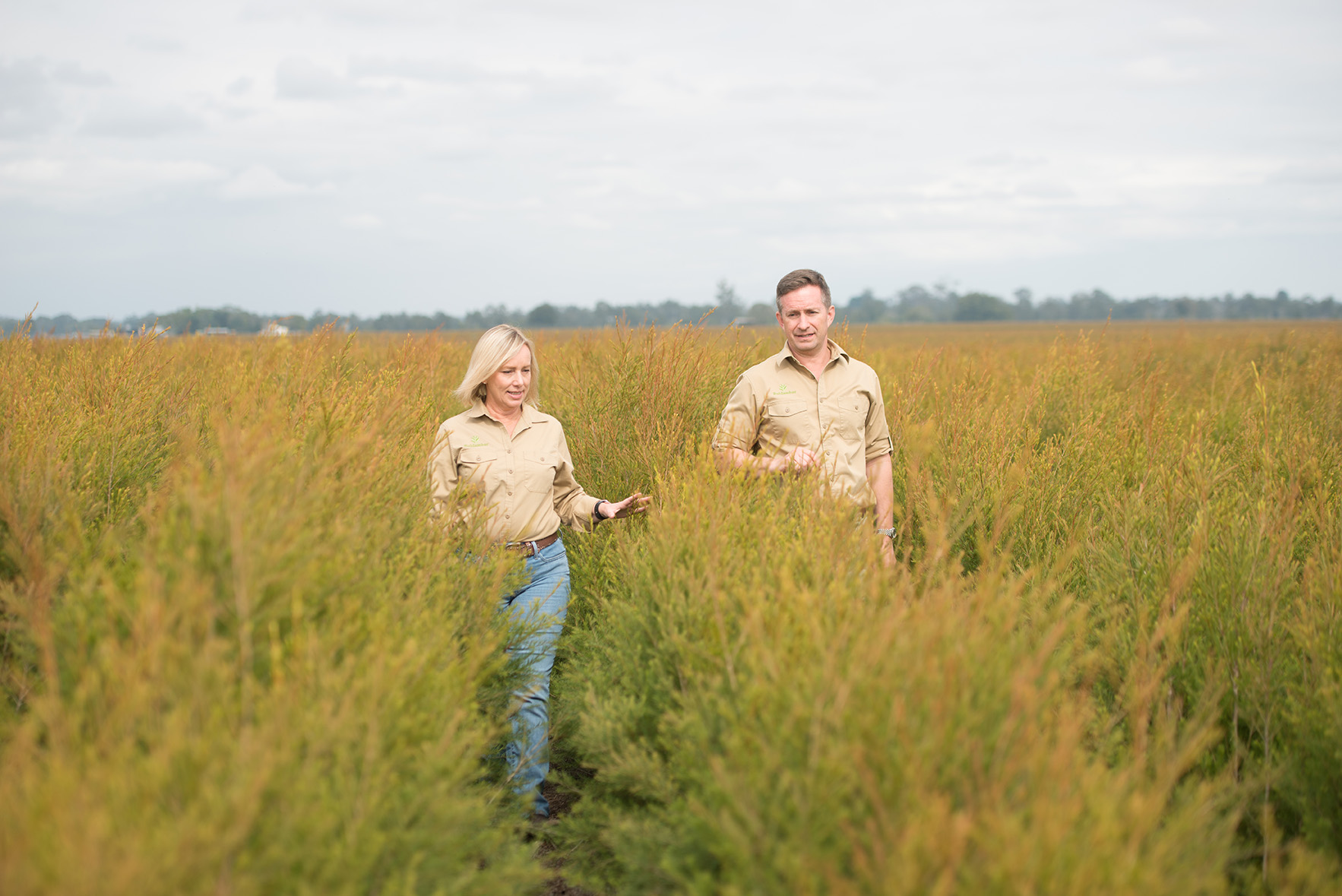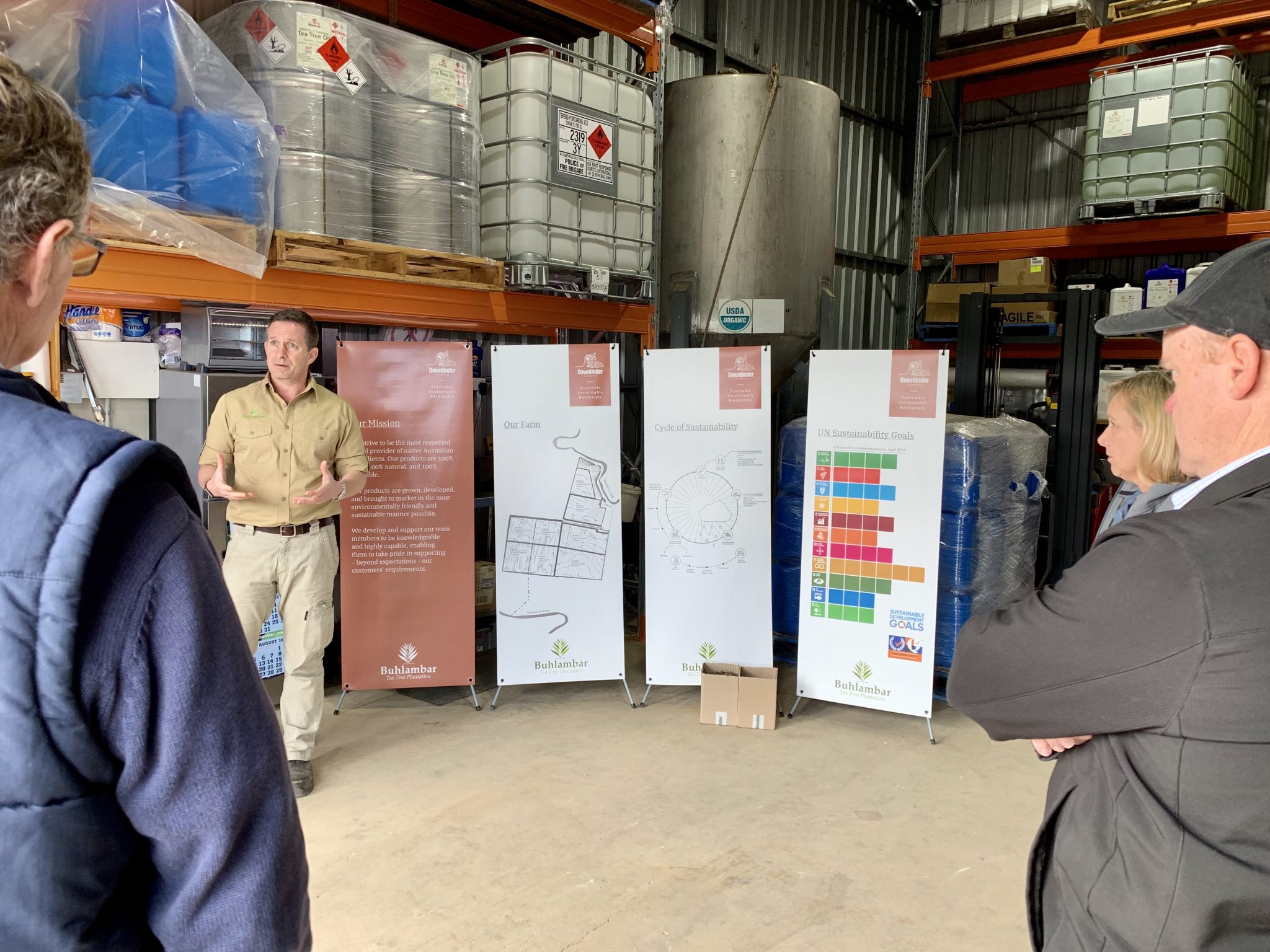Most of the plastic ever produced still exists in some form. Some is recycled but the majority accumulates in landfills or ends up in our oceans. Dee-Ann Prather was so horrified when she made that discovery she literally decided to “threaten” her business.
At the time, her Down Under native Australian oils were being packed in High-density polyethylene (HDPE) plastic flasks which could only be “downcycled” into lesser grade plastics. If she switched to aluminium, it could be melted down, retain its high purity and remain in use. It would also be a lot more expensive but despite that, Dee-Ann and husband Phil made the switch.
“The sole reason we did that was the sustainability aspect,” said Dee-Ann.
The couple were already selling their oils at a premium price, with 90% of their product going overseas and 90% to North America. The cost of the new packaging had to be added to that.
“We were concerned about the negative ramifications of increasing the price. But we rolled out good communications explaining the reasons behind the move and didn’t lose anyone.”
Want to know more about the Prather’s approach to sustainability?
- Watch their video showcasing their approach to day-to-day activities such as packaging through to designing their farm https: www.downunderenterprises.com/sustainability
- Read about their Platnium Eco Vadis rating
Taking risks to save the planet
It’s not the first time, Down Under Enterprises has taken these environmental leaps of faith.
“When we set up our tea tree farm, Buhlambar, we spent more money than if we hadn’t been so focussed on doing the right thing environmentally,” said Dee-Ann.
“But it’s who we are and we have faith our customers appreciate that as we’ve kept so many of them for 15 plus years.
“They know who we are in terms of ethics, morals and what we’re trying to achieve. We are what it says on the label: traceable, sustainable botanicals.
“I don’t know if it leads to better profitability, but I am confident it leads to long-term relationships and that gives us a very solid business foundation and a de-risking of our business going forward.”
Dee-Ann is pleased to see the likes of AgriFutures Australia encouraging other rural businesses to also spruik their strong sustainability credentials on the international stage.
“It’s the way the whole world is moving. If we don’t follow along and instead do dirty farming and throw waste into waterways that will catch up on us. Sustainability hasn’t yet risen to the point where it’s become a severe impediment to doing business but it’s getting there,” said Dee-Ann.
The couple say Europe is the big driver for change when it comes to sustainability.
“Europe’s push for free trade agreements and its focus on carbon credits will see Australian businesses who want to do business globally becoming more focused on sustainability measures,” said Phil.
Big corporates demanding Sustainable Development Goals
The importance Dee-Ann places on the United Nation’s Sustainable Development Goals (SDGs) is particularly pointed as, although a sixth-generation farmer, she began her career working in investment banking and management consulting.
She returned to her roots after her parents revealed they were having a tough time selling their tea tree oil. Dee-Ann and Phil were living in America at the time and offered to help find a market there.
That was 20 years ago and the couple loved the business so much that in 2016, they bought their own farm on Australia’s Northern Rivers in NSW. It’s now the most advanced of its kind in the country growing tea tree oil and various Australian natives that produce essential oils.
By the time they made the land purchase, the couple had already become aware of the increased interest in sustainability practises, farming methods and carbon footprints by multi-nationals who also expected documentation to prove those credentials.
However, it wasn’t until the subject of SDGs became a major point of discussion at the Sustainable Cosmetics summit in New York in 2019 that Dee-Ann realised this could provide a framework through which she could showcase what they were doing and the importance of an accredited rating, like Eco Vadis.
“It [Eco Vadis] made sense to us because we were already doing a lot of sustainable practices within our business so why not bundle it up and receive an international accreditation for the work we are already doing,” said Dee-Ann.
The summit also confirmed that it could be very good for business. Cosmetics giant, Estee Lauder, for instance, recently achieved net zero emissions. This now means suppliers who can show they are carbon neutral or carbon negative receive preference when it comes to being part of their supply chain.
Relevant goals
“When Phil and I bought our own farm we were already very cognisant of what was important to customers. It was the core of what we wanted to do anyway but it was comforting to know that it was also what was being demanded and that we could measure, monitor and report in a way that was needed,” said Dee-Ann.












